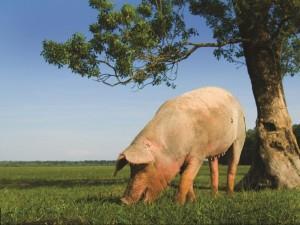The Humane Slaughter Association (HSA) has joined forces with Defra to jointly offer £400,000 of research funding for a project to develop a more humane way to stun pigs during commercial slaughter.

The project aims to ensure that any proposed method is not only more humane, but also practically and economically viable, so that it is likely to be adopted by the pig industry.
The research will attempt to replace the stunning of pigs by direct exposure to high concentrations of carbon dioxide, which is currently common practice for the commercial slaughter of pigs.
The use of CO2 in high concentration is permitted under EU and national regulations, however research has shown that pigs find direct exposure to high concentrations of CO2 aversive.
In 2003, the Farm Animal Welfare Council’s report recommended that this method should be phased out, while the following year, a report by the European Food Safety Authority confirmed the effectiveness of the method, but noted it resulted in respiratory distress in pigs.
Similar concerns were reportedly expressed for poultry and alternative controlled atmosphere systems are now in use within the poultry industry.
The funding aims to develop, as well as validate, a more humane method of animal slaughtering, which could replace high-concentration CO2 stunning of pigs.
HSA’s chief executive and scientific director, Dr Robert Hubrecht, said: “The HSA hopes that this collaborative funding opportunity with Defra will lead to improvements in the welfare of pigs at the time of slaughter.”
This story was originally published on a previous version of the Meat Management website and so there may be some missing images and formatting issues.












